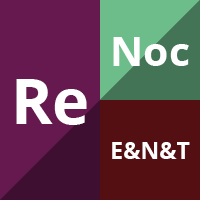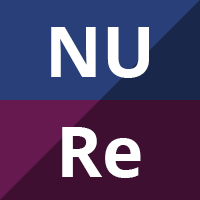
Therapeutic exercise for people with amyotrophic lateral sclerosis or motor neuron disease
Abstract Background Despite the high incidence of muscle weakness in individuals with amyotrophic lateral sclerosis (ALS) or motor neuron disease (MND), the effects of exercise in this population are not well understood. This is an update of a review first published in 2008. Objectives To systematically review randomised and quasi-randomised studies of exercise for people […]

Cognitive rehabilitation for executive dysfunction in adults with stroke or other adult non-progressive acquired brain damage
Abstract Background Executive functions are the controlling mechanisms of the brain and include the processes of planning, initiation, organisation, inhibition, problem solving, self monitoring and error correction. They are essential for goal-oriented behaviour and responding to new and novel situations. A high number of people with acquired brain injury, including around 75% of stroke survivors, […]

Acupuncture for acute management and rehabilitation of traumatic brain injury
Abstract Background Traumatic brain injury (TBI) can be life threatening depending on the severity of the insult to the brain. It can also cause a range of debilitating sequelae which require cognitive, motor, communication, emotional, or behavioral rehabilitation of varying intensity and duration. A number of studies conducted and published in China have suggested that […]

Non pharmacological interventions for spasticity in multiple sclerosis
Abstract Background Spasticity is commonly experienced by people with multiple sclerosis (MS), and it contributes to overall disability in this population. A wide range of non pharmacological interventions are used in isolation or with pharmacological agents to treat spasticity in MS. Evidence for their effectiveness is yet to be determined. Objectives To assess the effectiveness […]

Enteral feeding methods for nutritional management in patients with head and neck cancers being treated with radiotherapy and/or chemotherapy
Abstract Background This is an update of a Cochrane review first published in The Cochrane Library in Issue 3, 2010. For many patients with head and neck cancer, oral nutrition will not provide adequate nourishment during treatment with radiotherapy or chemoradiotherapy due to the acute toxicity of treatment, obstruction caused by the tumour, or both. […]

Spinal manipulative therapy for acute low-back pain
Abstract Background Many therapies exist for the treatment of low-back pain including spinal manipulative therapy (SMT), which is a worldwide, extensively practised intervention. This report is an update of the earlier Cochrane review, first published in January 2004 with the last search for studies up to January 2000. Objectives To examine the effects of SMT […]

Comparison of speech and language therapy techniques for speech problems in Parkinson’s disease
Abstract Background Patients with Parkinson’s disease commonly suffer from speech and voice difficulties such as impaired articulation and reduced loudness. Speech and language therapy (SLT) aims to improve the intelligibility of speech with behavioural treatment techniques or instrumental aids. Objectives To compare the efficacy and effectiveness of novel SLT techniques versus a standard SLT approach […]

Speech and language therapy versus placebo or no intervention for speech problems in Parkinson’s disease
Abstract Background Parkinson’s disease patients commonly suffer from speech and vocal problems including dysarthric speech, reduced loudness and loss of articulation. These symptoms increase in frequency and intensity with progression of the disease). Speech and language therapy (SLT) aims to improve the intelligibility of speech with behavioural treatment techniques or instrumental aids. Objectives To compare […]

Biofeedback and/or sphincter exercises for the treatment of faecal incontinence in adults
Abstract Background Faecal incontinence is a particularly embarrassing and distressing condition with significant medical, social and economic implications. Anal sphincter exercises (pelvic floor muscle training) and biofeedback therapy have been used to treat the symptoms of people with faecal incontinence. However, standards of treatment are still lacking and the magnitude of alleged benefits has yet […]

Inspiratory muscle training for the recovery of function after stroke
Abstract Background Inspiratory muscle weakness has been observed in patients with stroke. Inspiratory muscle training is an intervention that has shown possible effects for functional recovery of patients with stroke. Objectives To investigate the effect and safety of inspiratory muscle training for improving activities of daily living, respiratory muscle function, quality of life and cardiorespiratory […]

